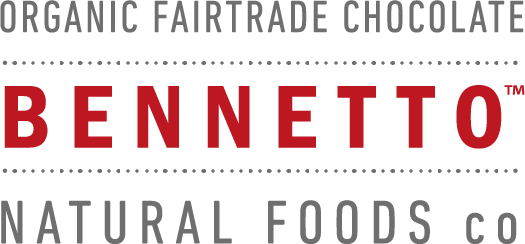A little bird told us that you’re feeling nervous about heavy metal levels in dark chocolate…
You’re not alone!
At Bennetto Natural Foods, we think that everyone deserves to know exactly what goes into the food they’re eating and we want to address this issue head-on; to help you to gain a bird’s eye view of the situation.
Lead and Cadmium Levels in Dark Chocolate
Lately, there has been growing concern about heavy metals such as lead and cadmium in dark chocolate, and many anxious dark chocolate connoisseurs have been reaching out to ask us about it.
But how did we get here?
Heavy metals in chocolate class action
From 2014 to 2022, 72 consumer cocoa-containing products were purchased and analysed for heavy metal contamination. Results showed that many chocolate brands that we all know, and have no doubt enjoyed before, contained heavy metals, particularly lead and cadmium.
Naturally, these findings ruffled some feathers!
Heavy metals are known to cause a whole host of health problems, with elevated lead levels leading to neurological changes and cadmium being linked to kidney, bone and lung disease. Pregnant people and children are particularly at risk as their bodies develop and even small amounts of heavy metals have been shown to cause negative health impacts.
With such serious ramifications, it’s no wonder that lawsuits and class actions against chocolate companies have been all over the news.
Heavy metal content in cacao, like any other organic materials such as fruit, vegetables, grains, legums, seeds, and nuts, depends on the soil it grows in. While cacao is generally at low risk for heavy metal contamination, this risk can vary depending on its origin and, in the case of lead, cocoa can even be contaminated during the drying and processing stages - not just the growing!
Essentially, as a product of the earth, trace amounts of heavy metals are unavoidable in cocoa products. Dark chocolate is particularly concerning for many with its high cocoa content, while milk chocolates are likely to contain less heavy metals due to the lower cocoa percentage.
Because of this, it is essential that any companies making products with cocoa as an ingredient, source from reputable growers and test their products regularly to ensure heavy metal content is within safe limits.
If you are interested in more information here is a great paper about it that you might like to read.
Heavy metal levels in Bennetto chocolate
At Bennetto, all of our chocolate is organic and Fairtrade. Despite the rising costs of cocoa as a result of the cocoa crisis, we continue to work with many small-scale farmers to ensure that only the highest-quality raw materials go into our bars of dark chocolate.
We can’t speak for any other chocolate companies, but our chocolate is processed in Switzerland, where our manufacturer, HALBA, conducts regular tests to ensure the metal content is in compliance with the law. Our cocoa masses are regularly analysed for lead and cadmium as part of our monitoring process; however, we do not issue formal statements on values since they are within the required safety levels.
Our recipes are also designed and tested depending on the origin of the beans to comply with EU food law. The spec sheet for our 82% Super Dark chocolate (the highest cocoa content bar in our range, and therefore the most likely to have elevated heavy metal levels) shows that:
“The current maximum levels for contaminants and pesticides are respected and comply with the Swiss regulations of the EDI 817.022.15 and 817.021.23 as well as the regulations of the EU (EC) No. 1881/2006 and (EC) No. 396/2005 in their valid version.”
Here in New Zealand, we have our chocolate retested by Hill Laboratories. Our range consists of nine SKUs, using cacao sourced from either Madagascar or Peru, with cocoa content ranging from 60-82%.
Our February 2025 testing found cadmium at 0.153 mg/kg within our Super Dark 82% chocolate (our highest cocoa content bar), and lead at < 0.02 mg/kg. Most of our range has 60% cocoa content, so the results for our Raspberries in Dark bar is a more accurate representative of our range; these tests came back with cadmium at 0.28 mg/kg and lead at < 0.02 mg/kg.
The Australia New Zealand Food Standards Code sets a maximum level for cadmium in chocolate of 0.5mg/kg. It does not specify a maximum level for lead in chocolate. However, the European Union has a maximum level of 0.1mg/kg. All of our test results fall well below this.
What you can do to avoid heavy metals (and still enjoy dark chocolate!)
While all of our chocolate is far below what is considered safe, of course, if you want to avoid heavy metals altogether, you could give up eating dark chocolate entirely (and fruit, vegetables, grains, legumes, etc.). But if, like us, you don’t think that’ll fly, don’t wing it by eating just any brand of chocolate, be sure to choose chocolate from brands you trust. Reach out to them for their stance on heavy metal testing, stick to the recommended serving size, and enjoy chocolate as part of a balanced diet!
We think that chocolate can make the world a better place and we certainly don't want you feeling like you need to avoid eating our chocolate! At Bennetto, our mission is to provide high-quality, healthy dark chocolate that you can trust. We’re proud to offer chocolate that is made with care for the planet and the people you care about.
By prioritising careful sourcing, rigorous testing, and sustainable practices, we ensure every bar of Bennetto chocolate meets the highest standards of safety and taste. In other words, Bennetto chocolate is a sure perch and you’ll be able to savour every last bite knowing that we’re committed to your health and well-being.
Flock to your local Bennetto stockist or have a peck around our store and feel free to reach out to us for more information about any of our chocolate - we’re always happy to chirp about it!





